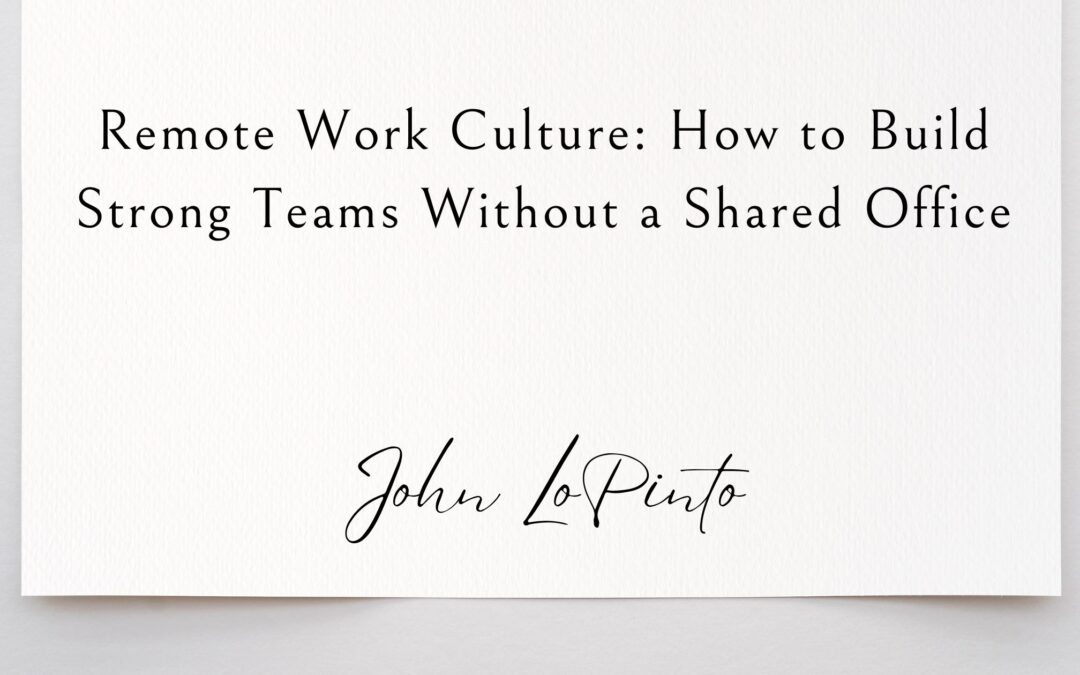Remote work has evolved from a temporary solution into a permanent part of the modern business landscape. As more companies adopt hybrid or fully remote models, one of the biggest challenges they face is building and maintaining a strong team culture. Without the shared spaces and spontaneous interactions of an office, leaders must be intentional about fostering collaboration, connection, and a sense of belonging.
Why Culture Matters in a Remote Environment
Culture is the invisible glue that holds a team together. It shapes how people communicate, solve problems, and support one another. In a remote setting, culture does not happen naturally—it must be designed and maintained with purpose. Without regular face-to-face contact, employees can feel isolated, disconnected from their peers, or unclear about expectations. A strong remote work culture helps prevent burnout, increases engagement, and drives better performance across the board.
Prioritize Clear Communication
In the absence of in-person cues, clarity becomes critical. Set communication norms early on so everyone understands when to use email, chat, video calls, or project management tools. Encourage regular check-ins to keep teams aligned and make space for questions. Overcommunicating is often better than leaving room for confusion. Leaders should model transparency and openness to create a space where people feel comfortable speaking up.
Use Technology to Bridge the Gap
Tools like Slack, Zoom, Notion, and Asana make it possible to collaborate effectively across time zones. But the tools themselves are not the culture—the way you use them is. Avoid micromanagement and focus on outcomes rather than activity. Encourage asynchronous communication to respect different schedules and reduce the pressure for constant availability. The right digital habits help create structure and trust.
Foster Personal Connections
Without coffee breaks or hallway chats, it is easy for teams to focus only on tasks. Make space for informal interactions. Virtual coffee hours, game sessions, or interest-based Slack channels give team members a chance to connect on a human level. Celebrating birthdays, milestones, and achievements—even virtually—helps people feel seen and valued. A culture that supports connection beyond work builds loyalty and morale.
Support Autonomy and Accountability
Remote work thrives on trust. Give your team the autonomy to manage their time while setting clear goals and expectations. Rather than tracking hours, focus on deliverables. Empowering employees to take ownership of their work builds confidence and fosters a culture of responsibility. When everyone knows their role and how it contributes to the bigger picture, teams stay motivated and aligned.
Final Thoughts
Building a strong remote team is not about replicating the office online—it is about creating a new kind of workplace culture that fits the way we live and work today. With clear communication, meaningful connection, and mutual trust, remote teams can be just as effective and cohesive as those that share a physical space. When done well, remote work offers not only flexibility but also the potential for deeper focus, higher satisfaction, and long-term success.

